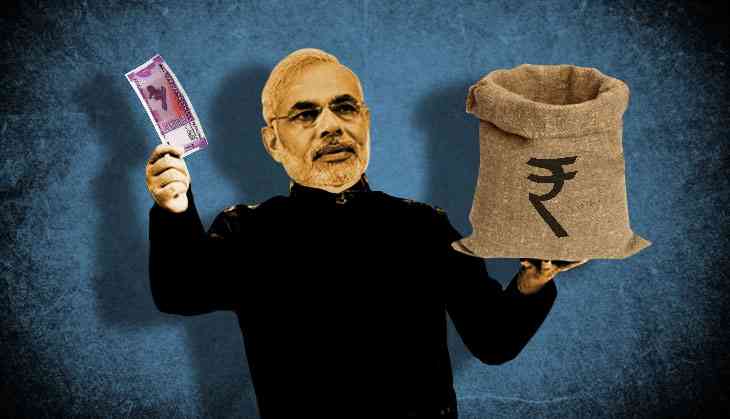Farm loan waiver: an indecisive Modi can wreck India's economy

It seems to be the season of farm loan waivers in India, and the contagion is spreading.
It all started with the Yogi Adityanath government in Uttar Pradesh, which announced a loan waiver to the tune of Rs 36,000 crore for the state's farmers, urging farmer organisations in other states to demand the same from their governments.
As a result, the Maharashtra government has announced that it will give the biggest loan waiver ever to its farmers by 31 October this year. Other states are expected to follow soon.
Farmers from Tamil Nadu, too, are demanding the same and the Opposition in the Karnataka Assembly has also urged the state government to write off farm loans.
How much would a countrywide waiver cost?
If one goes by the analysis of the Chief Economic Advisor to the Government of India, Arvind Subramanian, a countrywide farm loan waiver could cost around 2% of the GDP, leading to wider state fiscal deficits, affecting growth.
Farm loan waivers can also lead to inflationary pressures, forcing the Reserve Bank of India to put a halt on or even increase the interest rates in the country, beginning a vicious cycle of low growth period due to high cost of debt for farmers, as well as industry.
Who should be blamed for farmers' plight?
According to the latest numbers provided by the government, India's agriculture sector grew 4.9% in January-March 2017. Why, then, are the Indian farmers are in distress, asking for loan waivers?
A major reason for the demand is the government's indecision regarding the bad loans of the corporate sector, which amount to more than Rs 10 lakh crore.
“If Vijay Mallya can get away with a Rs 9,000 crore loan, why can't the farmer be given relief of a few lakhs?” goes the popular narrative in the country.
And why not? A government that is afraid to recover bad loans from industrialists has no moral authority to force farmers to repay their loans, even if government data claims that farm activity grew the most in seven years.
Where did govt go wrong?
The Modi government's decision to demonetise 86% of the currency notes in November 2016 put the brakes on the smooth growth of the Indian economy, dragging it down by 1.3 percentage points.
Even if one believes that agriculture activity was at its highest in seven years, no one can deny that many farmers lost their incomes due to the sudden destruction of the informal economy in the country.
If that was not enough, the government, blinded by its political agenda, introduced a law that bans the sale of cattle for slaughter in the cattle markets.
In a country where 65% of farm households have less than one hectare of land, income from livestock makes a significant portion of their overall income. Taking away that income was an atrocious decision. A poor farmer may not be able to speak up against cow vigilantes on the streets, but he will demand a loan waiver in whatever way possible from the government.
Is there a way out?
The loan waivers fire, now that it has been lit, is difficult to contain. But if at all the government wants to free the economy from the burden of massive write-offs, it must begin to deal with corporate bad loans with an iron fist. Unless the general public feels that there are no privileges for the rich and the elite in the country, it would be difficult to drive home the importance of repaying loans.
To put it in simple words, why should the Mallyas and Ambanis have all the fun?
Another thing that the government must do is to separate its economics from politics. The ban on the sale of cattle for slaughter must be rolled back immediately.
Finally, the government should talk to chief ministers of all the states that are mulling farm loan waivers to win over their electorate, and offer a moratorium over a complete waiver.
If a farmer's finances are bad in the current financial year for some reason, they might improve in the coming years. Letting go of the whole amount would only make the implementation of future development schemes in the states difficult.
At this juncture, the Modi government cannot afford to be indecisive; if it does, it could well be held responsible for destroying the Indian economy.
First published: 7 June 2017, 23:13 IST

